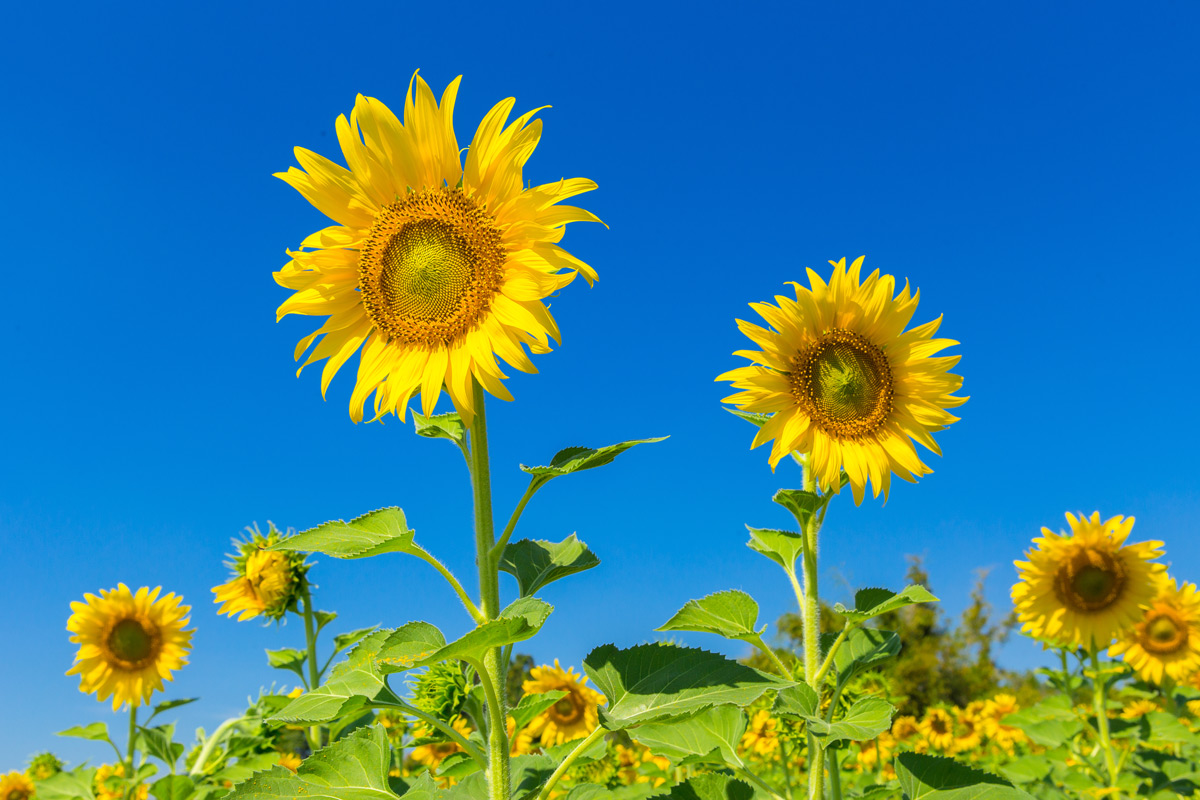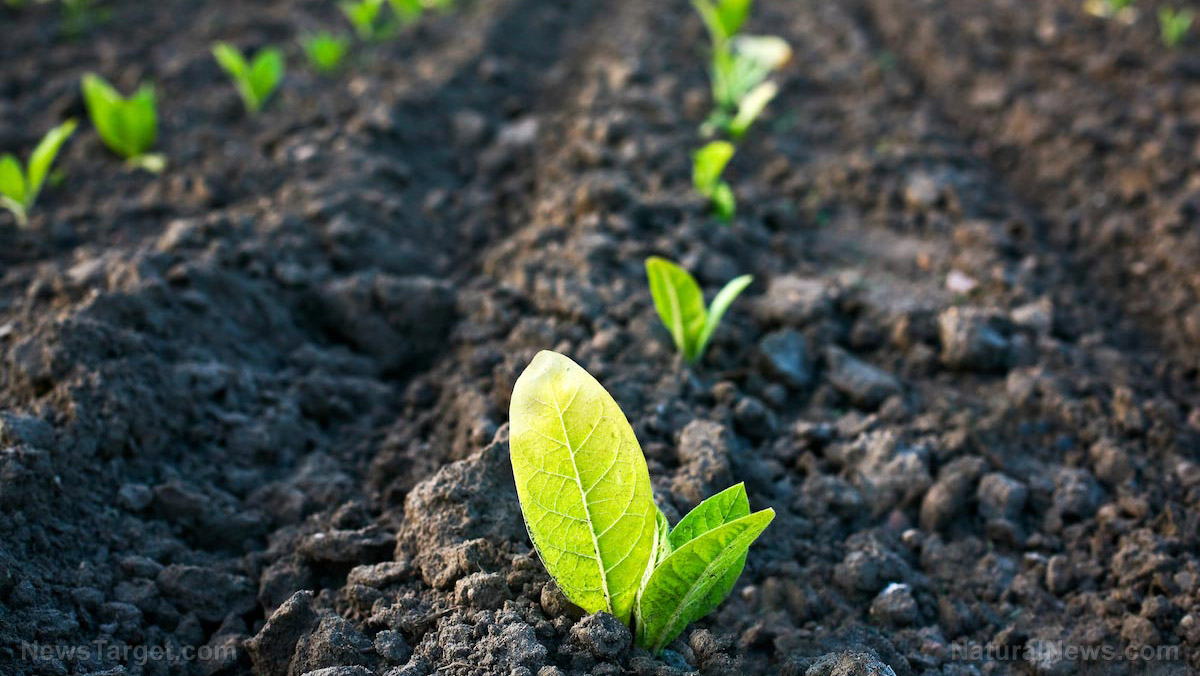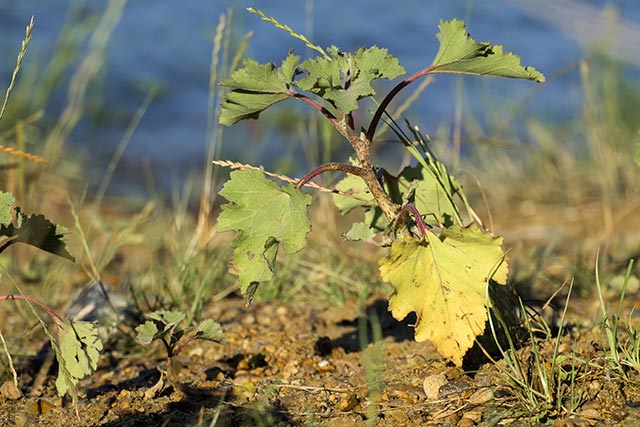A little bit of sunshine: How to grow sunflowers
04/20/2017 / By Rhonda Johansson

Just looking at a sunflower is enough to make anyone happy. The earthly representation of the sun, these flowers are bright and beautiful. Sunflowers are not just decorative though — their seeds have been studied to have numerous health benefits. Furthermore, the oil extracted from the flower can be used to heal the skin and keep it supple. This beloved plant is usually associated with rural landscapes but can be cultivated quite easily for the home garden. These essential tips can help novice gardeners bring a little sunshine into their lives.
Growing your own sunflower garden
Choose a location that is constantly exposed to sunlight. For obvious reasons, these flowers thrive in areas with full sun. Sunflowers are quite tough and are not very particular about the soil they are set in. As long as the soil is not waterlogged, it should be fine. Sunflowers tend to do better in soils that are slightly acidic to somewhat alkaline (aim for a pH zone of 6.0 to 7.5). Once they set, sunflowers tolerate drought quite well. Regardless, water them regularly during their growth period (around 20 days before and after flowering) to ensure continuous blooming. Deep watering also encourages better root growth, which benefits taller sunflower varieties with top-heavy blooms.
Sow seeds directly into the soil any day after the last spring frost. To be safe, plant seeds around two weeks before the last expected spring frost. Space seeds about six inches apart in a shallow trench one to two inches deep. For sandier soil, two inches is preferred. Cover the area and regularly water until the seeds sprout. This usually happens in seven to 10 days. When the second set of leaves appear, thin the plants to around two feet apart. Sunflowers mature and develop seeds in 80 to 120 days. Try sowing a new row every two to three weeks to extend your sunflower season.
If you’re using traditional tall varieties such as Mammoth, Aztec Gold Hybrid, Paul Bunyan Hybrid, or Super Snack Hybrid, spread rows two to three feet apart. For smaller varieties a spacing of six inches will suffice. You can skip fertilizing these smaller types to yield fewer branches.
Other care tips
Since sunflowers grow vigorously, it is recommended to add slow-acting granular fertilizer to keep them healthy. The better the sunflower’s “diet,” the larger their flowers will be. Avoid nitrogen-rich fertilizers as these delay flowering. Spread a two to three-inch layer of mulch around the area to reduce moisture loss and discourage weeds.
Sunflower varieties that grow more than three feet fall require staking. These varieties typically have fairly brittle branches, especially around the joints. Varieties that have heavy flower heads are also vulnerable to summer rain and winds. Make sure to tie these plants loosely to stakes with some soft material or lengths of cloth.
Be mindful of birds and squirrels. These animals tend to gather around the garden when the sunflowers begin to bloom. If you are not planning on using the seeds, you can cut the flower heads off and lay them out in the sun to dry. This gives the animals easier access to the seeds. If you are planning on using the seeds, erect barrier devices to deter birds and squirrels. As seeds mature and the flower heads droop, cover each one with a white polyspun garden fleece. This keeps critters out. You can also cut the leaves closest to the heads to make it harder for birds to perch and feed.
To harvest seeds, cut the seeds heads off a foot or so from the stem and hang these in a warm, dry, well-ventilated place. Let them cure for several weeks. When the seeds are dried, dislodge them by rubbing two heads together or brushing them off with your fingers or a stiff brush. Let the seeds dry for a few more days and store in an airtight jar.
Sunflowers are easy to care for and are great to have in your backyard. Their smiling faces bring light to any home.
Sources include:
Tagged Under: gardening, growing sunflowers
RECENT NEWS & ARTICLES
COPYRIGHT © 2017 ENVIRON NEWS




















